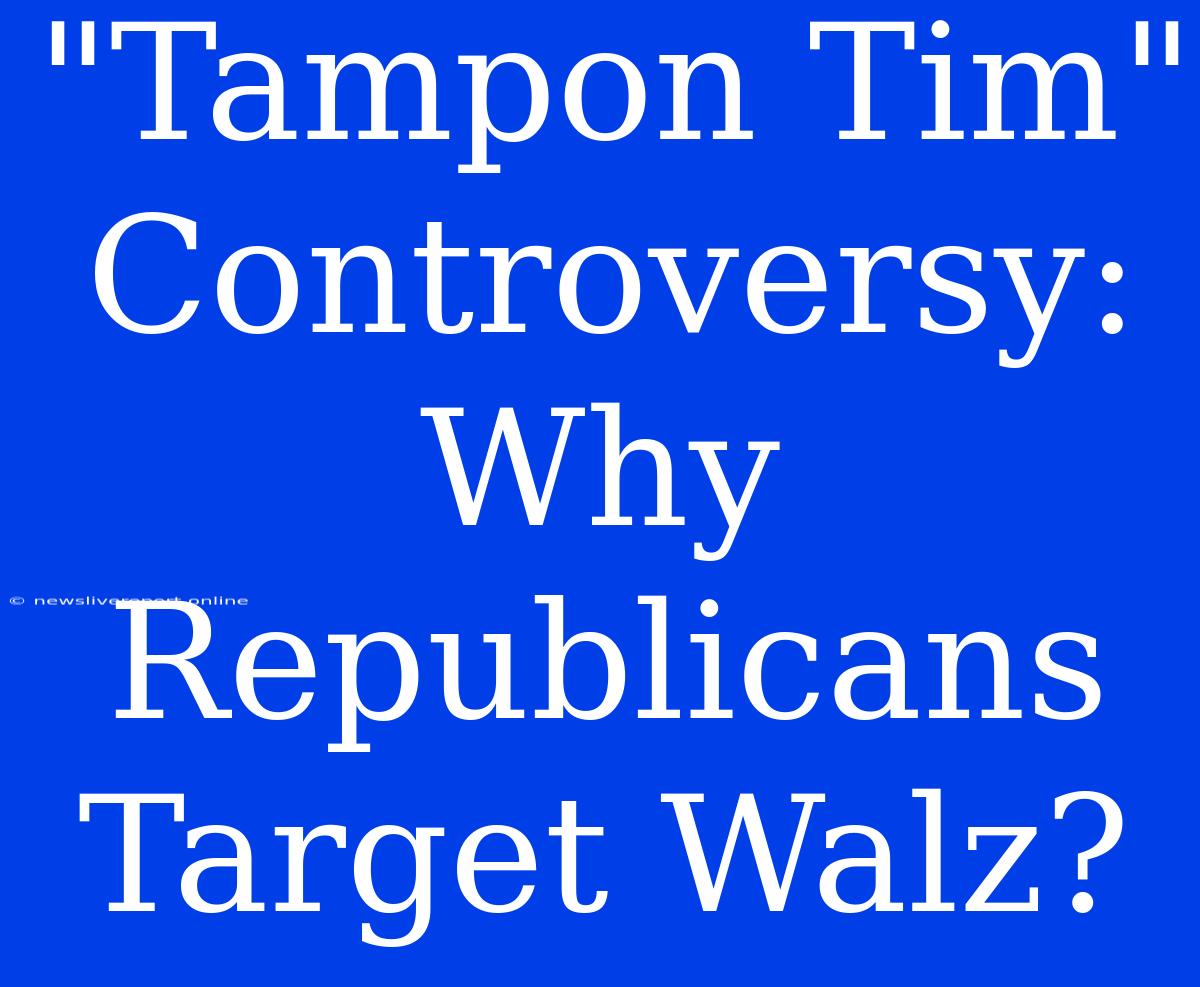"Tampon Tim" Controversy: Why Republicans Target Walz?
The recent "Tampon Tim" controversy has ignited a heated political debate in Minnesota, with Republicans zeroing in on Governor Tim Walz over his administration's decision to provide free menstrual products in schools. This issue, seemingly a simple matter of hygiene and access, has become a powerful symbol in a broader cultural war, exposing deep divisions on issues of gender, sexuality, and government intervention.
What is the "Tampon Tim" Controversy?
The controversy stems from a Minnesota Department of Education program that will provide free menstrual products in public schools across the state. The initiative, funded by the state budget, aims to ensure that all students have access to essential hygiene products, regardless of their socioeconomic background. However, the program has been met with fierce opposition from Republican lawmakers, who have branded it as "Tampon Tim" and accused Walz of "social engineering."
Republican Arguments:
Republican critics of the program argue that it constitutes an overreach of government power, intruding into the domain of parental responsibility and choice. They claim that the initiative is unnecessary, suggesting that families are capable of providing menstrual products themselves. Additionally, some Republicans have raised concerns about the program's cost, questioning whether the state budget should prioritize this initiative over other needs.
Democratic Counterarguments:
Democrats, on the other hand, defend the program as a necessary step towards ensuring equity and access for all students. They argue that access to menstrual products is essential for maintaining hygiene and well-being, and that a lack of access can lead to absenteeism and embarrassment for students. They also emphasize the financial strain that providing these products can place on low-income families.
Beyond the "Tampon Tim" Label:
While the "Tampon Tim" label might seem trivial, it reflects a deeper political divide. Republicans' rhetoric around the issue, often characterized by terms like "social engineering" and "radical agenda," taps into anxieties surrounding gender roles and cultural change. This language resonates with their base, who feel threatened by shifts in societal norms and fear that the government is overstepping its role.
The controversy highlights the stark differences between the two parties on issues of social welfare and government intervention. While Democrats see the program as a progressive step towards ensuring basic needs for all citizens, Republicans view it as an example of government overreach and an encroachment on individual liberties.
The Bigger Picture:
This "Tampon Tim" controversy is not an isolated incident, but rather a microcosm of the larger political landscape in the United States. It reflects the deep polarization that exists on issues related to gender, sexuality, and the role of government in individual lives. This debate is likely to continue, as both sides use this issue to mobilize their base and advance their political agendas.
Conclusion:
The "Tampon Tim" controversy is more than just a debate about free menstrual products. It represents a deeper clash of values and beliefs about the role of government, individual responsibility, and societal change. The outcome of this debate will likely have implications for future policies and the direction of the political landscape in Minnesota and beyond.

